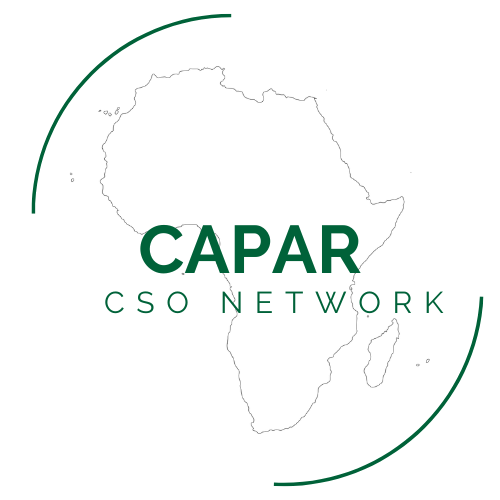Background
The Global South Forum (GSF), a first-of its-kind civil society led asset recovery meeting brought over 30 participants representing 25+ organisations drawn from 14 countries-. It provided an opportunity for participants to dialogue on cross-border kleptocracy and asset recovery efforts.
It is during this forum, that took place between the 7th and 9th November 2022, that participants had an opportunity to delve into the Common Africa Position on Asset Recovery (CAPAR). The discussions focussed on provisions and objects set out in CAPAR’s four pillars which are i) Asset detection and Identification; ii) Asset Recovery and Return; iii) Returned Asset Management; and iv) Cooperation and Partnership.
As an outcome to the Forum, participants agreed on the need to form a network to monitor the implementation of CAPAR – the CAPAR Civil Society Network.

Objectives
The objective of the network is joint CSO advocacy for the CAPAR and coordinated monitoring of national level implementation of the CAPAR.
Approach
The following are the six key approaches to tap onto CAPAR opportunities.
- Sustain the momentum of CAPAR: raising awareness of the existence of CAPAR, its scope and requirements, and popularizing CAPAR amongst citizens and civil society and government bodies in the African Union.
- Building civil society capacity around CAPAR: working collectively as CSOs through technical support, information sharing, knowledge exchange, joint action, to support stronger CSO engagement on CAPAR.
- Monitoring implementation: Working with asset recovery institutions at the country level to integrate the CAPAR pillars in their policies, collective sharing of best practices of countries implementation of CAPAR and name and shaming for non-implementation. Monitoring and preparing shadow reports on CAPAR implementation; and advocating for the African Peer Review mechanism to incorporate CAPAR pillars for review.
- Tools to help in implementation of CAPAR: development of tools to help the monitoring of CAPAR, including collecting and analysing data on individual countries implementation through shadow reports and comparative assessments across countries.
- Strengthening implementation of CAPAR: through the development of monitoring and shadow reports submitted to key institutions, highlighting key recommendations, and targeted initiatives/campaigns with lawmakers, advocating for strengthening the implementation of CAPAR.
- Establishing a civil society regional network: this would enable civil society organisations to support each other to make their voices stronger and acquire regional strength.
Coordination and structure
Civil society members meet regularly to agree on joint programmes and to share updates on the implementation. The meetings are held virtually. A chair is elected annually, while CiFAR supports the network as its secretariat. Any civil society organisation interested in joining the network can do so contacting CiFAR.
Chair of the network
The network is chaired for the period June 2024 – June 2025 by Lucas Olo Fernandes, Equatoguinean Commission of Jurists (CEJ).
Previous chairs:
- Rev. David Ugolor, Executive Director of ANEEJ – Africa Network for Environment and Economic Justice in Nigeria (2023-2024).
Membership
The network is an open platform where civil society organisations from Africa and other continents engaged in asset recovery initiatives converge to dialogue, strategize and take action aimed at influencing and monitoring the implementation of CAPAR.
If you would like to join the network, please reach out to info(at)cifar.eu
Current members
| TI Cote d’Ivoire | Cote d’Ivoire |
| TI Cote d’Ivoire | Cote d’Ivoire |
| Equatoguinean Commission of Jurists (CEJ) | Equatorial Guinea |
| Gambia participates | Gambia |
| TI Secretariat | Germany |
| CIAG | Kenya |
| CCGD | Kenya |
| TISA | Kenya |
| GFI | Kenya |
| TI Kenya | Kenya |
| TI Madagascar | Madagascar |
| TI Madagascar | Madagascar |
| TI Morocco | Morocco |
| CIP | Mozambique |
| CCD | Mozambique |
| ANEEJ | Nigeria |
| CISLAC | Nigeria |
| Corruption Watch/TI South Africa | South Africa |
| Lawyers of Africa (PALU) | Tanzania |
| I Watch | Tunisia |
| ACCU | Uganda |
| TI Zambia | Zambia |
